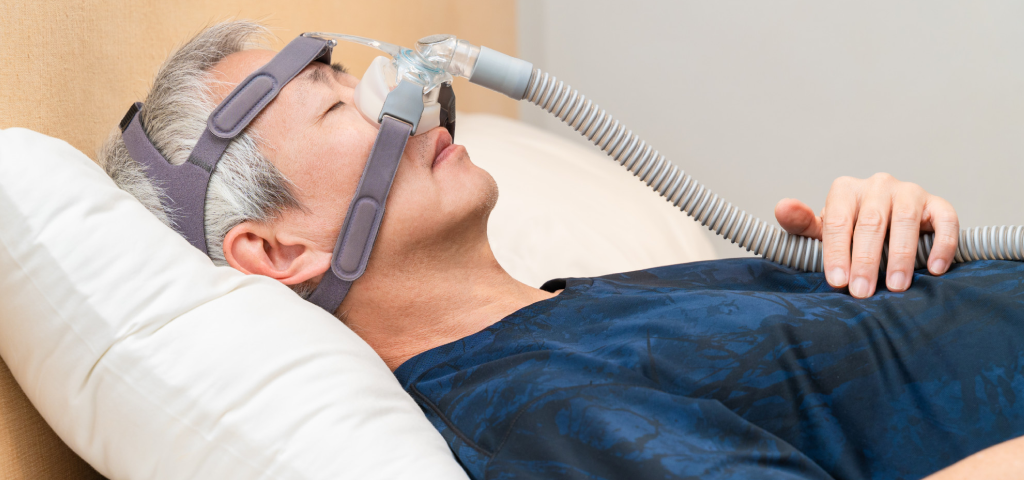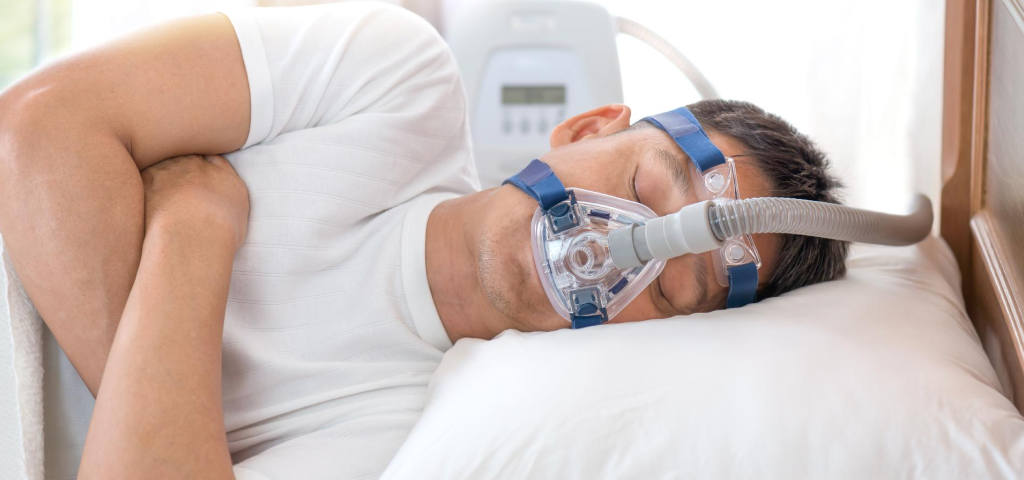How Is Sleep Apnea Treated?
Introduction
Sleep apnea is a prevalent sleep disorder characterized by repeated interruptions in breathing during sleep. These interruptions, known as apneas, can significantly impact sleep quality and overall health. Sleep apnea is typically classified into three main types: obstructive sleep apnea (OSA), central sleep apnea (CSA), and complex sleep apnea syndrome (CompSAS). Understanding the sleep apnea treatments is crucial for managing the condition effectively. This article explores the various treatment for sleep apnea options, with a particular focus on the innovative device developed by Dentulu.
Understanding Sleep Apnea
Before diving into sleep apnea treatments, it’s essential to understand the basics of sleep apnea:
- Obstructive Sleep Apnea (OSA): The most common form of sleep apnea, OSA occurs when the muscles in the throat relax excessively during sleep, leading to a partial or complete blockage of the airway.
- Central Sleep Apnea (CSA): CSA is less common and involves the brain failing to send the proper signals to the muscles that control breathing.
- Complex Sleep Apnea Syndrome (CompSAS): This type is a combination of OSA and CSA and can be particularly challenging to treat.
The symptoms of sleep apnea include loud snoring, choking or gasping during sleep, excessive daytime sleepiness, morning headaches, difficulty concentrating, and irritability. Left untreated, sleep apnea can lead to severe health problems such as hypertension, heart disease, stroke, diabetes, and more.
Traditional Treatment Methods
-
- Continuous Positive Airway Pressure (CPAP):
CPAP therapy is the most common and effective treatment for sleep apnea. It involves wearing a mask connected to a machine that delivers a continuous stream of air, keeping the airway open during sleep. While highly effective, CPAP can be uncomfortable for some patients, leading to issues with compliance. - Bilevel Positive Airway Pressure (BiPAP):
Similar to CPAP, BiPAP provides two levels of pressure: higher pressure when the patient inhales and lower pressure during exhalation. BiPAP is often recommended for patients who have difficulty tolerating CPAP or for those with CSA. - Oral Appliances:
These custom-fitted devices are worn in the mouth and help keep the airway open by repositioning the lower jaw and tongue. Oral appliances are less invasive than CPAP and can be a good option for patients with mild to moderate OSA.
- Continuous Positive Airway Pressure (CPAP):
- Lifestyle Modifications:
-
- Weight Loss: Excess weight can contribute to the narrowing of the airway, so losing weight can significantly reduce symptoms.
- Positional Therapy: Some patients experience sleep apnea primarily when sleeping on their backs. Positional therapy involves training the patient to sleep on their side.
- Avoiding Alcohol and Sedatives: These substances can relax the muscles of the throat, exacerbating sleep apnea.
- Surgery:
Surgical options may be considered when other treatments are ineffective. These can include:- Uvulopalatopharyngoplasty (UPPP): Removal of excess tissue from the throat.
- Genioglossus Advancement (GA): Repositioning the muscle attachment of the tongue.
- Maxillomandibular Advancement (MMA): Repositioning the upper and lower jaw to enlarge the airway.
- Inspire Therapy: An implantable device that stimulates the hypoglossal nerve, which controls tongue movement, to keep the airway open.
Dentulu’s Innovative Device for Sleep Apnea
Dentulu, a leading name in teledentistry and dental care innovation, has developed a groundbreaking device to address the challenges of sleep apnea treatments. Their device integrates cutting-edge technology with patient-centric design to offer an effective and comfortable alternative to traditional treatments.
- Device Design and Functionality:
Dentulu’s device is a compact, easy-to-use oral appliance that combines the benefits of traditional oral appliances with advanced monitoring capabilities. It is designed to be worn during sleep and works by repositioning the lower jaw and tongue to keep the airway open. The device also includes sensors that monitor the patient’s breathing patterns and other vital signs. - Advanced Monitoring and Data Collection:
One of the standout features of Dentulu’s device is its ability to collect and transmit data in real-time. This data can be accessed by healthcare providers to monitor the effectiveness of the treatment and make necessary adjustments. The device can track metrics such as breathing rate, oxygen levels, and the frequency of apneas, providing a comprehensive overview of the patient’s sleep health. - Personalized Treatment Plans:
Using the data collected by the device, Dentulu offers personalized treatment plans tailored to the individual needs of each patient. This personalized approach ensures that patients receive the most effective treatment possible, enhancing compliance and outcomes. - Telehealth Integration:
Dentulu’s device is fully integrated with their teledentistry platform, allowing patients to receive remote consultations and follow-up care. This integration makes it easy for patients to stay in touch with their healthcare providers and receive ongoing support, which is crucial for managing sleep apnea effectively. - Comfort and Ease of Use:
Unlike some traditional treatments that can be uncomfortable or cumbersome, Dentulu’s device is designed with patient comfort in mind. It is lightweight, easy to wear, and doesn’t require extensive maintenance. This user-friendly design encourages consistent use, which is vital for the success of any sleep apnea treatment.
Benefits of Dentulu’s Device
- Improved Compliance:
Comfort and ease of use are critical factors in treatment compliance. Dentulu’s device addresses these concerns, leading to higher compliance rates compared to traditional treatments like CPAP. - Real-Time Monitoring:
The ability to monitor and adjust treatment in real-time is a significant advantage. Healthcare providers can respond quickly to any issues, ensuring that the treatment remains effective over time. - Comprehensive Care:
By integrating with Dentulu’s teledentistry platform, the device offers a seamless healthcare experience. Patients can access consultations, receive personalized treatment plans, and get ongoing support without leaving their homes. - Cost-Effective:
Traditional sleep apnea treatments can be expensive, especially when considering the costs of equipment, maintenance, and follow-up care. Dentulu’s device offers a cost-effective alternative by combining treatment and monitoring into a single, affordable solution. - Patient Empowerment:
Providing patients with access to their own health data empowers them to take an active role in their treatment. This empowerment can lead to better health outcomes and increased satisfaction with the treatment process.
Alternative Sleep Apnea Treatment Options Without CPAP
For patients seeking sleep apnea treatment without CPAP, Dentulu’s device offers a promising solution. Other alternatives include:
- Mandibular Advancement Devices (MADs): These oral appliances work by moving the lower jaw forward to keep the airway open. They are effective for mild to moderate OSA and offer a comfortable alternative to CPAP.
- Positional Therapy: This involves using devices that prevent patients from sleeping on their backs, thereby reducing the likelihood of airway obstruction.
- Lifestyle Changes: Weight loss, exercise, and avoiding alcohol and sedatives can significantly reduce sleep apnea symptoms.
- Surgery: For patients who do not respond to other treatments, surgical options can provide long-term relief by addressing the anatomical causes of sleep apnea.
Innovative Sleep Apnea Testing Devices: Circul Pulse Oximeter Ring
Accurate diagnosis is a critical step in managing sleep apnea. The Circul Pulse Oximeter Ring is an advanced device that offers reliable sleep apnea testing. It is a non-invasive, wearable device that measures blood oxygen levels and heart rate, providing valuable data to healthcare providers. This data helps in diagnosing sleep apnea and monitoring the effectiveness of treatments.
Where to Order
For patients interested in Dentulu’s innovative device or the Circul Pulse Oximeter Ring, these can be ordered directly from the Dentulu website or through authorized healthcare providers. Dentulu’s platform offers a seamless ordering process, ensuring that patients receive their devices promptly and can begin their obstructive sleep apnea treatment without delay.
Conclusion
Sleep apnea is a serious condition that requires effective management to prevent long-term health complications. While traditional treatments like CPAP and BiPAP remain the gold standard, they come with challenges that can impact patient compliance. Dentulu’s innovative device offers a promising alternative by combining the benefits of oral appliances with advanced monitoring and telehealth integration. This comprehensive approach not only improves compliance and outcomes but also makes sleep apnea treatment more accessible and convenient for patients.
By leveraging cutting-edge technology and focusing on patient-centric design, Dentulu is setting a new standard in the treatment for sleep apnea. Their device represents a significant step forward in the ongoing effort to improve the lives of those affected by this common yet serious condition. As more patients and healthcare providers embrace these innovations, the future of sleep apnea treatment looks brighter than ever.


